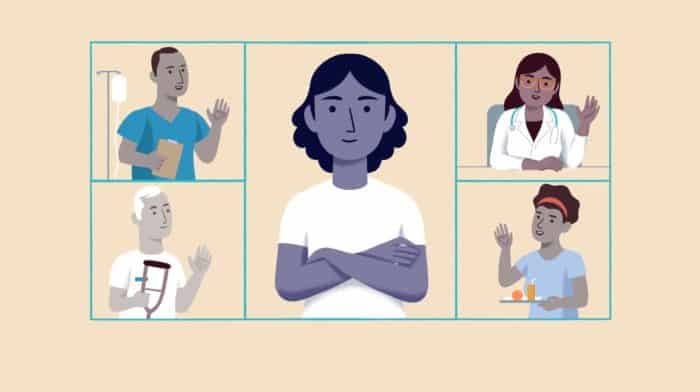Caring for Anxiety
Anxiety is a normal response to a threatening situation and can positively motivate us. However, it becomes a problem when it interferes with normal functions, causes physical symptoms and becomes intolerable to the person. These feelings can affect how one thinks, feels, behaves and relates to others. It can also affect how one feels about themselves. It’s not easy to care for someone who struggles with anxiety. In this video, you will learn about common signs of anxiety and how to deal with them.
It’s common to feel nervous from things like a first date or a job interview, but sometimes, you may have persistent thoughts of worry and fear that something bad will happen.
And these feelings can affect how one thinks, feels, behaves and relates to others. It can also affect how one feels about themselves.
This is known as anxiety.
It’s not easy to care for someone who struggles with anxiety. But first, let’s try to identify how anxiety might look like in a person you’re caring for.
This person might avoid people or situations.
They may feel very nervous and overly self-conscious when meeting new people.
They may also overreact negatively to criticism, and withdraw from social situations.
There are physical signs too. Common signs include sweating, nausea, racing heart, poor diet, fatigue and lack of sleep.
How can you help?
Listen without judgment. Don’t minimize or dismiss their experiences by telling the person to “stop worrying” or tell them that their fears are ridiculous.
Encourage them to get enough sleep, be physically active, and eat healthily. For example, you can suggest learning relaxation techniques and exercises together, like yoga.
And try to discourage the use of alcohol and/or drugs as a way to deal with anxiety symptoms.
Encourage them to connect with friends and family, and provide support when you can.
Make a safe and supportive environment for open dialogue.
Denying that anxiety is a problem often leads to a feeling of shame. It also deters people from seeking professional help and support.
But as a caregiver, you can change the stigma that’s attached to anxiety.
So do your best to suggest professional help.
Talk about effective treatments to manage anxiety. There are some that include medications, but there are also non-drug therapies like relaxation, and cognitive and exposure therapies.
Throughout, you should also remember to take care of yourself as a caregiver by setting boundaries, and limiting and restricting what you can and should do.
Being open, patient, and empathetic will go a long way in helping others deal with anxiety.
Check out our other videos for more caregiver support and learning.






